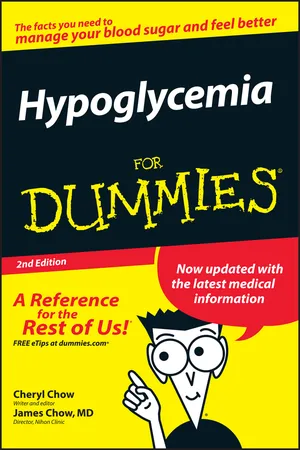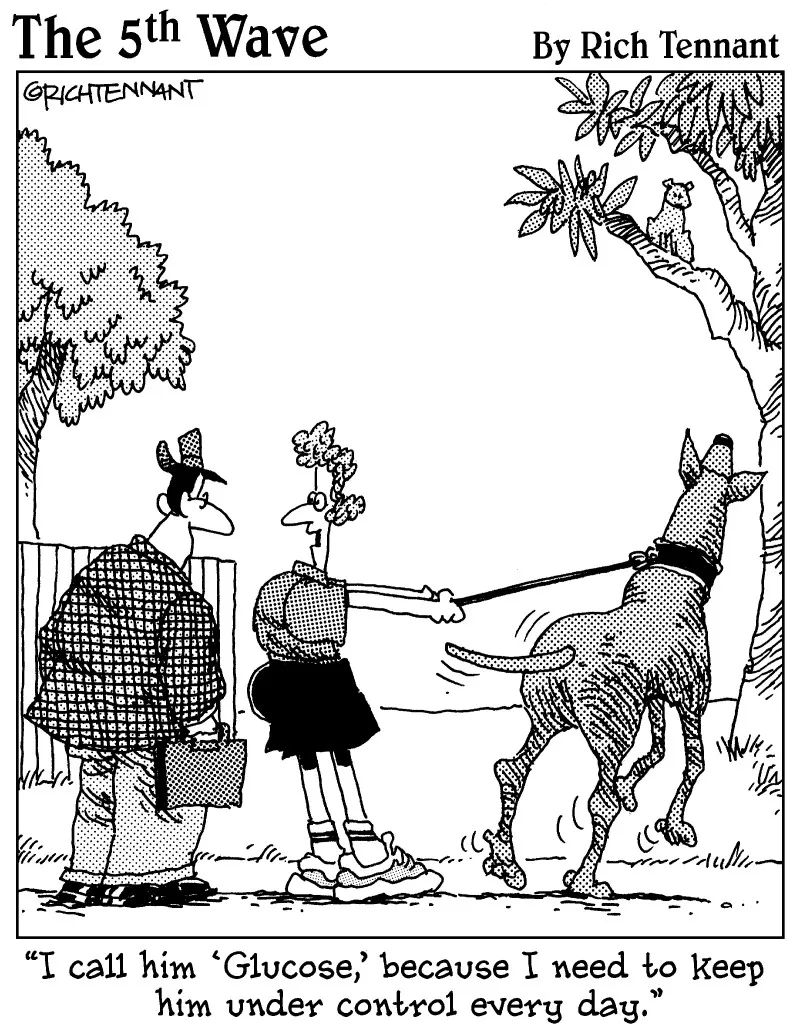
- English
- ePUB (mobile friendly)
- Available on iOS & Android
Hypoglycemia For Dummies
About this book
This no-nonsense, plain-English guide lays out the facts you need to maintain a healthy body. Hypoglycemia simply means "low blood-sugar, " but without concrete symptoms it's very hard to diagnose. It is nevertheless a condition that should be watched over carefully. People react differently to low blood sugar as well as to the treatment they receive. Hypoglycemia for Dummies explores this fickle condition and shows you how to manage your blood sugar to feel better.
It offers expert advice on identifying symptoms, changing lifestyles, and also extensive coverage on diet, exercise, alternative treatments, and the link between low blood sugar and diabetes. This expanded 2 nd edition provides:
- A thorough explanation of hypoglycemia and how it affects your body
- Exercise routines that lead to a healthier lifestyle
- Diet suggestions on what to eat and how often
- A basis for choosing a doctor that's right for you
- Vitamins and supplements that treat your symptoms
- Ways to manage hypoglycemia in the workplace
- An explanation of how hypoglycemia affects family and friends
- Methods to de-stress yourself
Complete with tips on helping other hypoglycemics and myth-debunking facts about the disease, Hypoglycemia for Dummies is the fast and simple way to learn and treat the condition, with the help of the most up-to-date medical information available. Escape the blood sugar blues and starting feeling better in no time!
Tools to learn more effectively

Saving Books

Keyword Search

Annotating Text

Listen to it instead
Information
Part I
Addressing Your Ups and Downs: Could This Be Hypoglycemia?

Chapter 1
Riding the Blood Sugar Roller Coaster Isn’t Any Fun
In This Chapter





Defining Hypoglycemia
Organic
Relative



Reactive
Table of contents
- Title
- Contents
- Introduction
- Part I : Addressing Your Ups and Downs: Could This Be Hypoglycemia?
- Part II : Diagnosing and Treating Your Hypoglycemia
- Part III : Emulating Lifestyles of the Well and Healthy
- Part IV : Spinning a Network of Support for Yourself (and Others)
- Part V : The Part of Tens
- : Further Reading
Frequently asked questions
- Essential is ideal for learners and professionals who enjoy exploring a wide range of subjects. Access the Essential Library with 800,000+ trusted titles and best-sellers across business, personal growth, and the humanities. Includes unlimited reading time and Standard Read Aloud voice.
- Complete: Perfect for advanced learners and researchers needing full, unrestricted access. Unlock 1.4M+ books across hundreds of subjects, including academic and specialized titles. The Complete Plan also includes advanced features like Premium Read Aloud and Research Assistant.
Please note we cannot support devices running on iOS 13 and Android 7 or earlier. Learn more about using the app